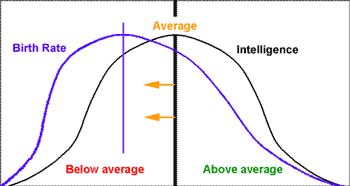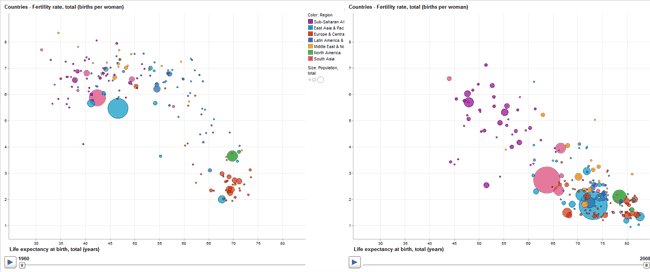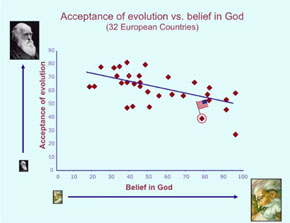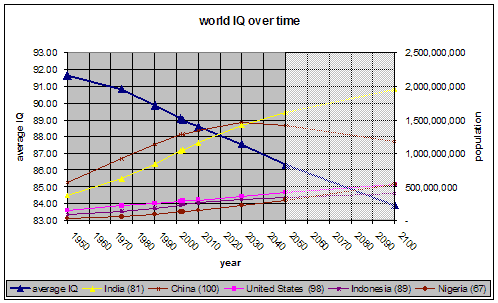|
Re: The Book
A list of all posts pertaining to Unnatural Selection, the book I'm writing.
(To preserve the "flow", these posts are listed chronologically.)
|
Welcome world to Critical Section, my weblog.
I started this weblog for two reasons. First, I think they're a great means of communication; I spend a lot of time reading other blogs (see my favorites on the right), and felt like I have things to say myself and that it was time to start saying them. Second, I am planning to write a book. No, I have never written a book before, and no, I don't know anything about it. So it will be a learning experience, please come along for the ride...
I plan to post daily about computer software, medical science, business, politics, philosophy, and notes on book writing (!)
|
|
The clouds enveloping the foreign world of non-fiction publishing are breaking up a little - I'm getting glimpses of the landscape...
|
|
I am an iterator. When I make something, I don't just make it and go on. I make it, then I remake it, then I remake it again, and iteratively improve it until I'm happy. I annoy myself sometimes, I am so unwilling or unable to leave something as it is...
|
|
Combining National IQ data from Richard Lynn's and Tatu Vanhanen's "Intelligence and the Wealth and Poverty of Nations" with world population data from the U.S. Census, we can quantify the decrease in world IQ over time. The consequences of this overall decrease in world IQ have yet to be quantified, but they are bound to be significant...
|
|
Back-to-school pop quiz: Why do poor children, and especially black poor children, score lower on average than their middle-class and white counterparts on IQ tests and other measures of cognitive performance?
That's the lead question in a Washington Post article about a new study that appears to show that IQ heritability varies significantly with socioeconomic status.
This would be a very important finding if true...
|
|
razib and godless are bored, so they plot and graph "religion important" vs. IQ for different countries. The bottom line: "religion and IQ are strongly negatively correlated (-.886)."
Continue reading...
|
|
Sometimes a picture is worth much more than 1,000 words. The Economist ran a great story recently about global economic inequality: More or Less Equal? The graphs which accompany the story are terrific, and thought provoking...
More...
|
|
There are people who do not believe the theory of evolution is sufficient to explain the existence of the world as we know it. They prefer to believe in creationism, the idea that there is a deity who created the world. I have no problem with people who wish to believe this, it is their prerogative, of course, just as they may chose to believe the Sun orbits the Earth, or that the Earth is 6,000 years old.
I only ask that they admit they are choosing to believe in “magic” instead of rational facts and logical reasoning. Please click for more...
|
|
I found this cool presentation by Keith Goodnight: Kin Selection and Inclusive Fitness.
It begins with the problem of altruism, examines group selection (and rejects it), makes the key distinction between genes and organisms (replicators and vehicles), examines the greenbeard effect, explains Hamilton's rule (conditions under which gene for altruism will be favored by selection), and finally ends up with inclusive fitness:
"An individual's fitness is not based only on its own reproduction but also on all the effects it has on other individuals, weighted by their relatedness to it."
If you're at all interested in these things, check it out!
|
|
On August 31, 2003, I posted IQ and Populations, which to this day remains my second most popular post. Unlike Tyranny of Email, my most popular article, the reaction is not generally positive. The post is popular in the sense of being widely linked, but unpopular in the sense of being widely disputed. While Tyranny asserts opinions that nearly everyone agrees with, IQ and Populations reviews facts with which nearly everyone disagrees.
Here is a discussion...
So, is this really true? Yes. Is this uncomfortable? Yes. Is this important? Yes.
|
|
In preparation for starting a new year I've changed the navbar at right to have six years' worth of "on this date" links; I began blogging on January 1, 2003. And doing so reminds me of six years ago, December 2002, when I had decided to write a book called Unnatural Selection, and as a sort of corollary, to start this blog.
 At that time I was on fire to communicate and discuss the problems caused by the Earth's human population becoming less intelligent, because birth rates are higher among less intelligent people. At that time I was on fire to communicate and discuss the problems caused by the Earth's human population becoming less intelligent, because birth rates are higher among less intelligent people.
I think one of the obstacles to working on the book was that I understood the problem better than the solutions. Fortunately in the intervening six years I've had a potentially useful insight that could lead to some solutions.
Anyway I am entering 2009 with a firm resolve to spend some time working on the book. I don't know how much time I'll actually have free, nor how much time writing the book is going to require, but making steady progress is my goal. Stay tuned!
|
|
 I've been thinking a lot about how to deal with Unnatural Selection. It's happening, and it's a problem, but the solutions are tough. I've been thinking a lot about how to deal with Unnatural Selection. It's happening, and it's a problem, but the solutions are tough.
To review, there are three components to the birth rate of a population, 1) choice, 2) generation length, and 3) death rate. The solutions I've been focusing on recently involve making having children less desirable, so as to affect choice (having fewer kids) and generation length (having them later). Peer pressure among young women is strong; if you could make having fewer kids cool, that would be good, and if you could make having kids later cooler, that would be good, too.
I toyed with the idea of starting a meme that "having kids makes you less attractive". I don't know if it is true, but it isn't obviously untrue, which makes it believable. Still there is something distasteful about this message; I sense it might be rejected by women who are already mothers, including the mothers of young women, and that could backfire. (A lot of social mores are propagated by older women.) Also a lot of kids are conceived in the heat of a moment, without much prior planning; in such circumstances a consideration like "this will make you less attractive in the future" wouldn't have much weight.
The meme I like best right now is "the pill is cool". It isn't as distasteful as "having kids makes you ugly", and might even appeal to mothers of young women, as it has the virtue that it advocates something preventative. If a women is already on the pill, she doesn't have to be smart in the heat of a moment, or think at all; it will keep her from having kids regardless. There is a religious / moral objection in that going on the pill reduces the deterrent effect of avoiding a possible pregnancy. I don't know how strong that is, but I do know that if more young women went on the pill, there would be fewer unplanned pregnancies and fewer abortions (let's face it, abortions are really birth control after the fact).
Anyway that's what I'm thinking about right now... it sure makes working on the book more interesting to focus on possible solutions than to merely report a problem.
|
|
 I haven't blogged about Unnatural Selection much lately, but it has been on my mind. I just came across an old email exchange I had with blog-reader-Dave regarding differential reproduction, and it seems particularly relevant as I've been thinking about family, and children, and grandchildren. Nicole (my oldest daughter) is 27 now, seriously thinking about getting married, and thinking about having kids, and so we're thinking about having grandkids... So. I haven't blogged about Unnatural Selection much lately, but it has been on my mind. I just came across an old email exchange I had with blog-reader-Dave regarding differential reproduction, and it seems particularly relevant as I've been thinking about family, and children, and grandchildren. Nicole (my oldest daughter) is 27 now, seriously thinking about getting married, and thinking about having kids, and so we're thinking about having grandkids... So.
Here's the exchange, as relevant today as when it took place in May 2003:
Dave:
An observation on your thesis for Unnatural Selection. I agree in general the factors selecting for intelligence have been on the wane in recent history. However, there may be some countervailing influences going on as well.
One of them, I suspect, is the increased tendency (at least in western societies) for intelligent males hooking up and procreating with equally intelligent females. In the past the primary criteria that intelligent, successful males used in selecting their mates did not include innate intelligence. In fact this attribute was often seen as a liability in potential mates. Fortunately, this "barefoot and pregnant" philosophy has lost much of its legitimacy (again in western society). Of course popular culture (as reflected and amplified by the media) still sends women anti-intelligence messages - in effect saying it's much more important to have high biologic and societal quality than it is intellectual quality.
Ole:
You're dead right about smart guys meeting smart girls. It really works against regression to the mean. In fact, you could argue the right end of the bell curve is drifting to the right even as the mean drifts to the left.
Unfortunately it doesn't work against Unnatural Selection, in fact quite the opposite.
When smart guys meet smart girls, they generally wait until they're 30+ to have kids, and then when they do they have 2 or so... Meanwhile "not so smart" girls don't get married, they just start having kids in their late teens and dump them on society to take care of, and they might have 5+ to boot. And "not so smart" guys love 'em and leave 'em their chromosomes along the way. So who's really smart? From a genetic standpoint, the "not so smart" girl and guy are much smarter, because their genes will be much better represented in the next generation.
The crux of this problem is that "success" is no longer required for successful reproduction. You could be a prize-winning scientist or a burnt-out junkie, and it doesn't affect your genes' chances of making it to the next generation in any way. In essence the junkie's kids are paid for by the scientist's taxes.
As I look around the world today I think this is happening much faster than I feared when I first began thinking about it at the turn of the century. Not only is there differential reproduction within countries - especially outside the U.S. - but there is differential reproduction between countries. Most of the world's population growth is now taking place in third world countries, supported by first world countries. Scary.
(sorry Dave that it took me so long to blog this, I hope it is still okay :)
|
|
This is pretty amazing - an interactive graph of fertility vs life expectancy for different countries.
 
On the left is 1960, and on the right, 2008. The X axis is life expectancy, and the Y axis is fertility. Each ball represents a country, the diameter is proportional to the population. The pink ball is India and the blue ball is China, the green ball is the United States. You can see the precipitous decline in China's birthrate caused by their "one child" law.
[Update: if you click through, you may notice the colors are different; seem to be chosen at random?]
Now we just have to add measured IQ, and you can get scared by Unnatural Section.
|
|
 Here's a pretty great BILL talk: Why Evolution is True, by Jerry Coyne. Here's a pretty great BILL talk: Why Evolution is True, by Jerry Coyne.
He begins by noting that the US is 34th among all countries in the acceptance of Evolution, just ahead of Turkey, and bemoans the fact. This sets up a basic explanation of what Evolution is and why it is true.
There's a lot of hard evidence presented, which is great, but I like that he structures the argument so well. There are the elements of evolution:
- Evolution occurs
- Speciation occurs
- Species have common ancestors
- Evolution occurs because of natural selection
 And there are predictions which come from the "theory": And there are predictions which come from the "theory":
- Life becomes more complex over time
- Speciation occurs over time
- Transitional forms exist
- Vestigial features exist
- Adaptation paths exist
- Concrete examples of Natural Selection
And he notes there are no counter examples; nothing has been found which refutes Evolution.
Based on the huge amount of scientific evidence supporting these elements, predictions, and lack of counter examples, the "theory" is considered scientifically true, in the same sense as the theories that matter is made of atoms, or of gravitation, or of relativistic space-time. He notes that all these other theories are more abstract, harder to grasp, and further from our everyday experience than Evolution, yet far more readily accepted.
 To wrap up he considers why, in the face of such overwhelming evidence, Evolution isn't more accepted in the US. Which brings him to religion; as shown in the graph at right, there is a strong negative correlation between acceptance of Evolution and belief in God. Nobody can doubt that the apparent conflict between religious teaching and Evolution is responsible for the lack of acceptance in the US. To wrap up he considers why, in the face of such overwhelming evidence, Evolution isn't more accepted in the US. Which brings him to religion; as shown in the graph at right, there is a strong negative correlation between acceptance of Evolution and belief in God. Nobody can doubt that the apparent conflict between religious teaching and Evolution is responsible for the lack of acceptance in the US.
{ I say "apparent" conflict because while Evolution obviates the need for religion to explain the existence of Earth and its inhabitants, it does not directly contradict most religious doctrine. But many people think it does... }
Unfortunately clear precise arguments like these are preaching to the choir; most people who accept scientific reasoning already accept Evolution anyway, and most people who don't accept Evolution also don't reason logically about it, so logical arguments are unlikely to sway them.
|
|
 I'm afraid I agree with this: People aren't smart enough for democracy to flourish. "The research, led by David Dunning, a psychologist at Cornell University, shows that incompetent people are inherently unable to judge the competence of other people, or the quality of those people's ideas" How many people know the candidates for whom they are voting, and understand their positions? And how many understand ballot issues on which they cast votes? Of course this unfortunate reality is exacerbated by Unnatural Selection. I'm afraid I agree with this: People aren't smart enough for democracy to flourish. "The research, led by David Dunning, a psychologist at Cornell University, shows that incompetent people are inherently unable to judge the competence of other people, or the quality of those people's ideas" How many people know the candidates for whom they are voting, and understand their positions? And how many understand ballot issues on which they cast votes? Of course this unfortunate reality is exacerbated by Unnatural Selection.
So what can be done? I've often thought maybe there should be a brief quiz, and if you don't pass the quiz your vote doesn't count. This might prove unworkable or even unconstitutional, but it is compelling. For a more drastic solution, please read In the Wet, and learn about multiple voting...
In the meantime, we can ask, is this true? Absolutely. And it's true on multiple levels. The average man on the street didn't understand that voting for Obama meant voting for socialism. They didn't understand that socialism doesn't work. And they certainly didn't think it would raise their taxes or their health insurance premiums. The average congressperson didn't understand that voting for Obamacare would mean wholesale changes to the health insurance industry, which would mean many policies would be cancelled or not renewed, and others made more expensive. It's common sense - if you want to insure "everyone" including those previously uninsurable, then those who were previously insurable will have to bear the costs - but you have to be relatively intelligent to use common sense.
I'm afraid "relatively intelligent" not only doesn't apply to the average man on the street, it also doesn't apply to the people they elect to represent them...
|
|
As frequent visitors know I am a big fan of intelligence -related studies and feel they are most important. If nothing else doing such work is difficult and courageous, because it often flies in the face of political correctness.
Anyway my friend and correspondent Liron pointed out this article: The decline of the world's IQ, by Richard Lynn and John Harvey, and suggests this trend be referred to as the Lynn effect, in counterpoint to the Flynn effect, which is the observation that many human populations have seen an increase in their measured IQ over time. Here's the abstract of the paper:
Dysgenic fertility means that there is a negative correlation between intelligence and number of children. Its presence during the last century has been demonstrated in several countries. We show here that there is dysgenic fertility in the world population quantified by a correlation of − 0.73 between IQ and fertility across nations. It is estimated that the effect of this has been a decline in the world's genotypic IQ of 0.86 IQ points for the years 1950–2000. A further decline of 1.28 IQ points in the world's genotypic IQ is projected for the years 2000–2050. In the period 1950–2000 this decline has been compensated for by a rise in phenotypic intelligence known as the Flynn Effect, but recent studies in four economically developed countries have found that this has now ceased or gone into reverse. It seems probable that this “negative Flynn Effect” will spread to economically developing countries and the whole world will move into a period of declining genotypic and phenotypic intelligence. It is possible that “the new eugenics” of biotechnology may evolve to counteract dysgenic fertility.
 The global effect predicted by this paper is somewhat less pronounced than the extrapolations I made in IQ and populations, but are of the same order. I considered differential fertility rates between different countries; this study is more precise, and considers differential fertility rates within countries, based on differential rates between different segments of a population. There is another effect based on generation size which could also be considered, which would directionally reinforce these other two effects. The global effect predicted by this paper is somewhat less pronounced than the extrapolations I made in IQ and populations, but are of the same order. I considered differential fertility rates between different countries; this study is more precise, and considers differential fertility rates within countries, based on differential rates between different segments of a population. There is another effect based on generation size which could also be considered, which would directionally reinforce these other two effects.
Interestingly, a Google search for "the decline of the world's IQ" turned up this image as the top hit; it is taken from my now-11-year-old blog post, but was used unattributed in a Sociology 110 class at the University of Hartford. I'm glad I've been able to contribute in small way to the general dialog on this subject :)
I'm delighted to learn that there is a Journal called Intelligence devoted to "research and theoretical studies that contribute to the understanding of Intelligence", and plan to subscribe. (Stay tuned!)
|
© 2003--2026 Ole Eichhorn
|


|




